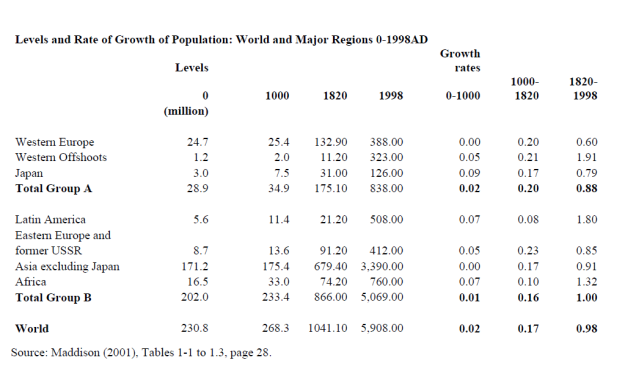
This is a map of the world showing each country’s highest valued export. It’s interesting to look at the intercontinental differences. The more ‘developed’ West tends to focus on secondary goods and services as their most valued exports. Whereas, those countries that are (under) developing tend to focus on primary products.
There are various theories surrounding the link between primary product exports and under development, but that’s an issue for another post (I’ve briefly mention it in an earlier article https://lsveconomics.wordpress.com/2014/05/01/the-natural-resource-curse/ ).
If you’re interested in learning more about the ‘natural resource curse’ then I suggest the following articles:
- Jeffrey D. Sachs and Andrew M. Warner, 2001, The curse of natural resources, European Economic Review, vol. 45, issue 4-6, pp. 827-838
- 1998 Annual World Bank Conference on Development Economics, Gallup and Sachs ‘Geography and Economic Development’ pp. 127-188
- 1998 Annual World Bank Conference on Development Economics, Paul Krugman ‘Is Geography Destiny’ pp. 89-126.
The link to the original article is http://www.businessinsider.com/every-countrys-highest-valued-export-2014-5


